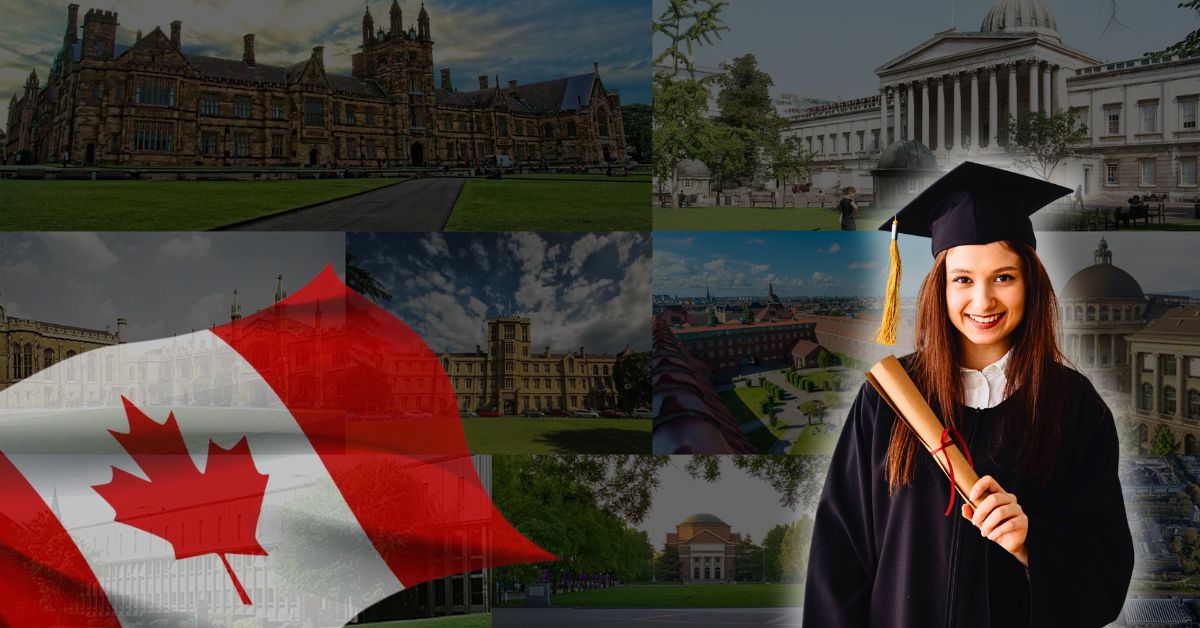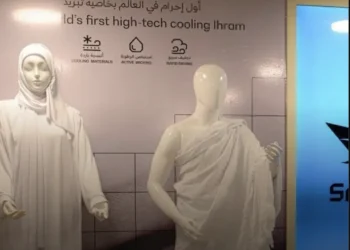Canada is home to over 100 universities, many of which rank highly on the global scale. These institutions are known for their academic rigor, research-driven programs, and diverse campuses. Among them, several universities consistently stand out due to their academic offerings, campus facilities, and the opportunities they provide to students. Top 8 Canadian Universities—University of Toronto, University of British Columbia, McGill University, University of Alberta, McMaster University, University of Waterloo, York University, and University of Calgary—are considered the most in demand by both domestic and international students.
This article delves into their histories, academic strengths, and unique attributes, while comparing their offerings to guide students in selecting the best university for their educational goals. Additionally, it outlines essential aspects such as application procedures, admission seasons, and scholarship opportunities.
Why Choose Canadian Universities?
Global Recognition: Degrees from Canadian universities are globally recognized, which significantly enhances employment prospects, particularly in multinational companies and industries requiring specialized knowledge.
High-Quality Research: Canadian universities are at the forefront of global research, contributing to breakthroughs in various fields such as technology, medicine, engineering, and environmental science.
Cultural Diversity: Canada’s multicultural society is reflected in its academic institutions, providing students with exposure to a variety of perspectives and fostering a global learning environment.
Work Opportunities: Many Canadian universities offer work-integrated learning opportunities such as internships, co-op programs, and post-graduation work permits, which enhance student employability.
Safe and Welcoming Environment: Canada is ranked as one of the safest countries globally, and universities maintain a strong focus on student well-being, providing a supportive and inclusive environment for all students.
Immigration Pathways: Canada offers favorable immigration policies for international students, including post-graduation work permits (PGWP), pathways to permanent residency (PR), and programs like Express Entry. These systems encourage skilled graduates to build long-term careers in Canada.
Choosing the Right University: Key Considerations
Field of Study: Select a university that offers specialized programs and strong academic faculties in your desired field. For instance, universities like McMaster and University of Alberta excel in health sciences, while the University of Waterloo is known for its engineering and computer science programs.
Location: Consider the location based on your preferences for climate, proximity to industry hubs, and lifestyle. For example, UBC offers a scenic coastal campus, while York University provides a vibrant urban experience in Toronto.
Co-op and Internships: Co-op programs are especially beneficial for fields such as business, engineering, and computer science. Universities like the University of Waterloo and University of Toronto are leaders in offering robust co-op opportunities.
Tuition and Living Costs: These costs vary significantly by province, program, and whether the student is a domestic or international applicant. Understanding the financial aspect is crucial when choosing a university.
Scholarships and Financial Aid: Many universities offer scholarships based on academic merit, financial need, or extracurricular achievements. Ensure you investigate available funding opportunities at your chosen institution.
Application Process: Step-by-Step Guide
Research Programs: Begin by visiting the university’s official website to gather information about your desired program, its structure, and the required prerequisites.
Meet Requirements: Check academic requirements, including minimum GPA, standardized test scores, and English proficiency tests (e.g., TOEFL/IELTS).
Prepare Documents:
- Academic transcripts
- Statement of Purpose (SOP)
- Letters of recommendation
- Resume or CV (required for some graduate programs)
Apply Online: Submit your application through the university’s online portal or, for some Ontario institutions, via the Ontario Universities’ Application Centre (OUAC).
Pay Fees: Application fees range from CAD 100 to CAD 200, depending on the university.
Track and Respond: Keep track of your application status through university portals and be prepared to respond to any additional requests or offers.
Apply for Visa: Once accepted, apply for a student visa (study permit) through the Canadian immigration office.
Read More: The Inspiring Growth of Bangladesh’s Pharmaceutical Industry: A Global Success Story till 2025
Admission Seasons
Fall (September): This is the primary intake period, offering a wide range of programs. It is the most competitive admission season, with a large number of applicants.
Winter (January): Some universities offer limited programs and have fewer spaces available during this intake period. It is ideal for students who missed the fall intake.
Summer (May): This intake is usually limited to graduate or diploma-level programs and has fewer offerings compared to fall and winter.
General Timelines:
- Application Period: October to February (depending on the university and program)
- Results Released: March to May
- Visa Process: April to July
University Profiles
University of Toronto (U of T)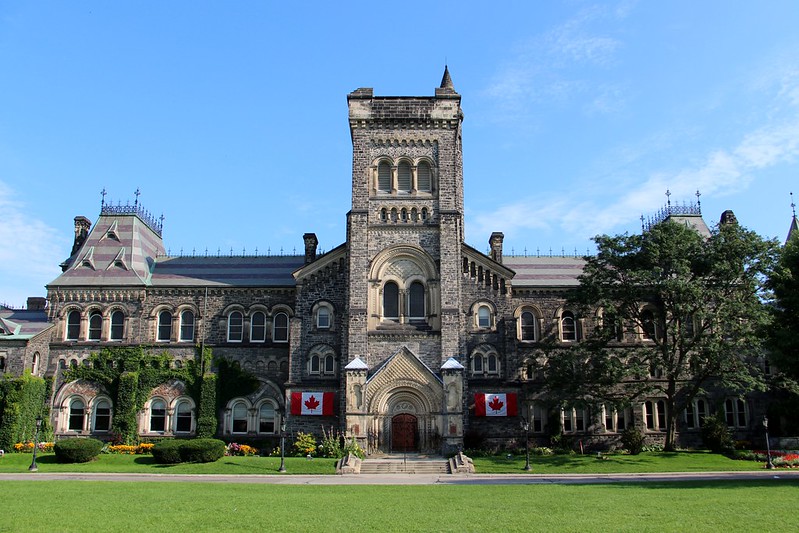
Overview:
The University of Toronto, established in 1827, is Canada’s largest and most prestigious university. With over 90,000 students, it is known for its academic rigor, world-class faculty, and contributions to global research and innovation. It is renowned for its interdisciplinary approach to education, offering students a dynamic learning environment that is globally recognized.
Academic Strengths:
- Research Excellence: U of T’s research is at the forefront of global innovation. With more than 80 research institutes and more than 500 active research partnerships, the university is recognized as one of the leading institutions in health, technology, and environmental sustainability.
- Engineering & Computer Science: The Faculty of Applied Science & Engineering is internationally regarded for its cutting-edge research. U of T is home to many engineering labs and innovation centers that collaborate with top industries worldwide.
- Business: The Rotman School of Management’s MBA and Ph.D. programs consistently rank among the top in the world. Rotman focuses on business design, entrepreneurship, and innovation.
- Medicine: U of T’s Faculty of Medicine is among the best globally, known for its research in medical technologies, neurology, and oncology.
- Campus Life: With multiple campuses, U of T offers a vibrant and diverse cultural environment. Toronto is a world-class city, providing students opportunities for internships, work placements, and global networking.
Admission Process:
- Undergraduate: Students must apply through the Ontario Universities’ Application Centre (OUAC). High school transcripts and standardized test results (such as SAT/ACT) may be required. For international students, proof of English proficiency is needed (TOEFL, IELTS).
- Graduate: Graduate applications are submitted through the graduate school’s website or specific department portals. Requirements often include a statement of purpose, transcripts, recommendation letters, and GRE/GMAT scores where applicable.
Scholarships:
- Lester B. Pearson International Scholarship Program: This is one of Canada’s most prestigious scholarships for international students, covering tuition, books, incidental fees, and full residence support.
- University of Toronto Scholars Program: This program provides a significant merit-based award to international students based on their academic performance.
University of British Columbia (UBC)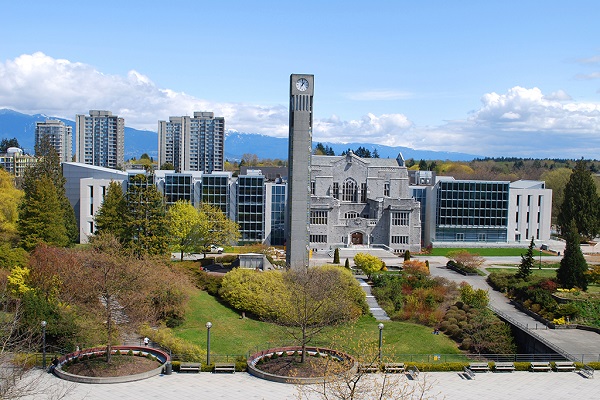
Overview:
UBC, founded in 1908, is located in Vancouver and is recognized globally for its contributions to research and teaching in various fields, including sustainability, health sciences, and the arts. The university is known for its environmentally conscious campus and commitment to green initiatives.
Academic Strengths:
- Environmental Sustainability: UBC has a strong reputation for its environmental studies and research. Its sustainability programs emphasize renewable energy, climate change, and environmental policy.
- Engineering: UBC’s engineering programs are ranked highly for civil, mechanical, and electrical engineering. The university is involved in global projects addressing energy conservation and innovation.
- Arts & Sciences: The Faculty of Arts has a wide range of programs in the social sciences and humanities, and the Faculty of Science is known for its research in chemistry, physics, and life sciences.
- Business: The Sauder School of Business is renowned for its MBA programs, particularly in international business and entrepreneurship.
- Campus Life: Vancouver offers both urban and natural attractions, including parks, beaches, and the mountains. The campus promotes a sustainable lifestyle, with various student-run sustainability initiatives.
Admission Process:
- Undergraduate: Application is made via UBC’s online portal. Students are required to submit high school transcripts, SAT/ACT results (for international applicants), and English proficiency test results (TOEFL or IELTS).
- Graduate: Graduate applications are submitted to the department of interest, with required documents including a personal statement, academic transcripts, reference letters, and standardized test scores (GRE, GMAT, etc.).
Scholarships:
- International Leader of Tomorrow Award: A need-based scholarship that covers tuition, fees, and living expenses for international undergraduate students.
- UBC Excellence Award: For international students with outstanding academic records.
McGill University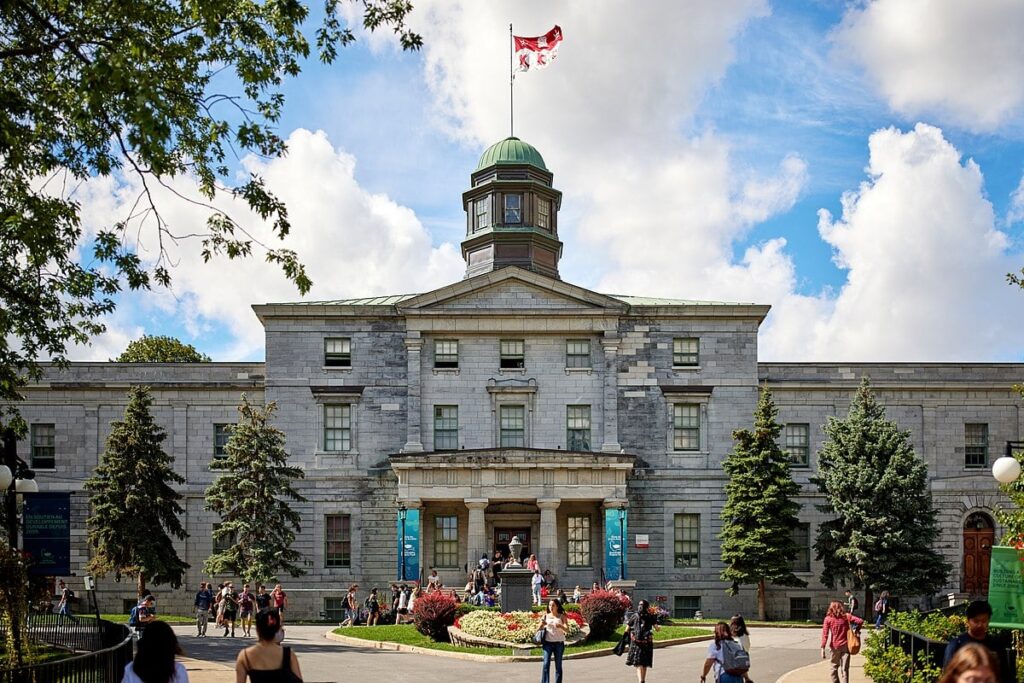
Overview:
Founded in 1821, McGill is located in Montreal, Quebec, and is one of Canada’s most prestigious institutions. It is known for its bilingual education system (English and French) and its extensive research programs, particularly in health and law.
Academic Strengths:
- Medical Sciences: McGill’s Faculty of Medicine is world-renowned, especially in areas like neurology, immunology, and pharmacology. The university’s hospitals and research centers are at the forefront of global medical research.
- Law: McGill Law is recognized for its focus on international law, human rights, and global legal studies, making it one of the top law schools globally.
- Bilingual Education: McGill’s dual-language approach provides students with a competitive advantage in global markets, particularly in the fields of diplomacy and international business.
- Social Sciences: The university has strong programs in anthropology, political science, and economics.
- Campus Life: McGill’s downtown Montreal campus provides students with access to cultural events, art exhibits, outdoor activities, and more. The bilingual environment creates a dynamic and multicultural student body.
Admission Process:
- Undergraduate: Applications are submitted via McGill’s online application portal. Students must meet the academic requirements specific to their program and submit high school transcripts, English or French proficiency tests (depending on the program), and SAT/ACT scores (if required).
- Graduate: Applicants must submit a personal statement, recommendation letters, and academic transcripts. Some programs may require GRE or GMAT scores.
Scholarships:
- McGill Entrance Scholarships: Merit-based scholarships for students with exceptional academic records.
- Bursaries: McGill offers need-based financial aid for students from low-income backgrounds.
University of Alberta
Overview:
The University of Alberta, located in Edmonton, is known for its strong focus on energy, engineering, and environmental science research. Founded in 1908, it is one of Canada’s leading research institutions and is deeply involved in solving global challenges related to energy and sustainability.
Academic Strengths:
- Energy and Engineering: U of A has made significant contributions to the energy sector, particularly in petroleum engineering, sustainable energy, and carbon management.
- Environmental Science: U of A is involved in research that addresses climate change, sustainable resource management, and conservation efforts.
- Medical Research: The university’s health sciences programs are widely respected, with notable research in medical technology and healthcare innovations.
- Campus Life: The university’s campus offers a vibrant mix of academic opportunities and outdoor activities, with Edmonton’s river valley providing a unique natural backdrop. U of A has a tight-knit community and hosts several student-run organizations and initiatives.
Admission Process:
- Undergraduate: Applications are made through the University of Alberta online portal. Applicants are required to submit high school transcripts, English proficiency tests, and may need to submit SAT/ACT scores for international applicants.
- Graduate: Graduate applications are submitted through the individual faculty or program’s website. Requirements often include a personal statement, recommendation letters, and transcripts.
- Scholarships: U of A offers numerous scholarships, including the International Entrance Scholarship, which is awarded to high-achieving international students.
McMaster University
Overview:
Established in 1887, McMaster is located in Hamilton, Ontario. The university is known for its medical programs, particularly its problem-based learning (PBL) approach, which encourages critical thinking and collaboration.
Academic Strengths:
- Health Sciences: McMaster is famous for its medical school, which is consistently ranked among the best in the world. The university employs a unique PBL model for medical education, which has been widely adopted across North America.
- Engineering: McMaster’s engineering faculty is well-regarded for its research in sustainable energy, robotics, and material science.
- Interdisciplinary Research: McMaster is known for fostering interdisciplinary research across health, engineering, and social sciences.
- Campus Life: The campus is collaborative and innovation-driven, emphasizing student-led learning. The nearby city of Hamilton offers numerous cultural, tech, and industry opportunities.
Admission Process:
- Undergraduate: Applications are made through the Ontario Universities’ Application Centre (OUAC). Students must submit high school transcripts and standardized test results (if applicable).
- Graduate: Applications are submitted directly to the respective graduate program. Applicants must submit recommendation letters, a personal statement, and transcripts.
Scholarships:
- McMaster Entrance Scholarship: Awarded to students with exceptional academic achievements.
- Graduate Scholarships: McMaster offers various merit-based scholarships to graduate students, particularly in health and engineering fields.
University of Waterloo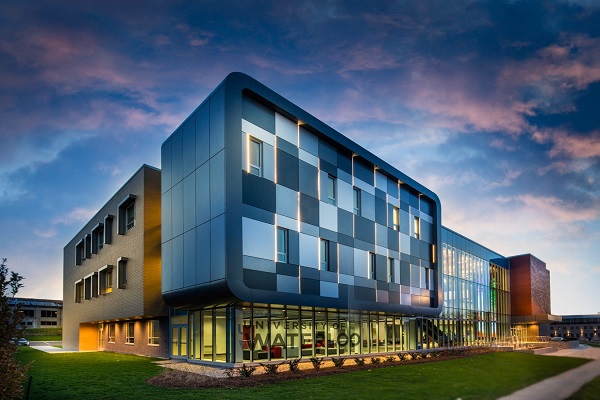
Overview:
Founded in 1957, Waterloo is known for its strong emphasis on co-op programs and STEM disciplines. The university is a leader in research related to artificial intelligence, computer science, and engineering.
Academic Strengths:
- Co-op Programs: Waterloo has one of the world’s largest and most successful co-op programs, allowing students to gain valuable work experience while studying.
- Engineering & Computer Science: Waterloo’s engineering faculty is particularly known for its work in aerospace, mechanical, and civil engineering. The university is a leader in AI and robotics research.
- Campus Life: The university offers a dynamic student life, with access to a large tech community and numerous networking opportunities. Waterloo is located near major tech hubs like Toronto and Kitchener.
Admission Process:
- Undergraduate: Applications are submitted through the Ontario Universities’ Application Centre (OUAC). Applicants must submit transcripts and standardized test scores, along with proof of English language proficiency (if applicable).
- Graduate: Graduate applications require submission to the specific faculty. Many programs require GRE or GMAT scores.
Scholarships:
- Waterloo International Funding: A series of scholarships available to international students.
- Entrance Scholarships: Waterloo offers merit-based scholarships for undergraduate students based on their academic performance
York University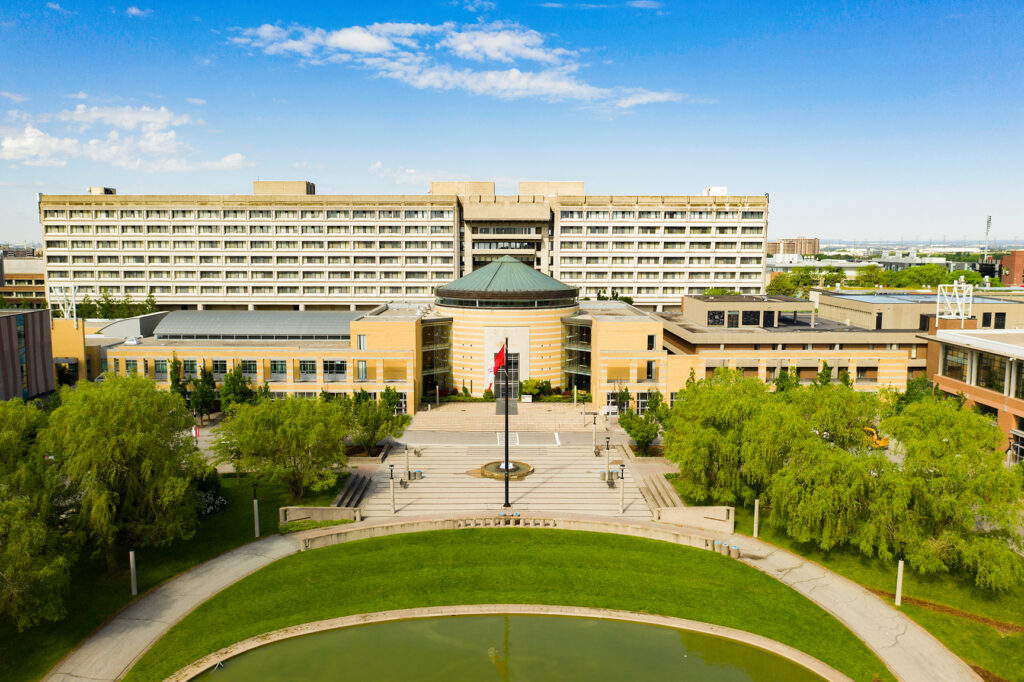
Overview:
Established in 1959 and located in Toronto, York University is one of Canada’s largest interdisciplinary research institutions. It is known for championing social justice, sustainability, and global engagement. The university’s innovative approach to education attracts students from over 170 countries.
Academic Strengths:
- Business & Law: York’s Schulich School of Business is internationally recognized for its MBA and BBA programs, especially in sustainability, international business, and finance. The Osgoode Hall Law School is one of the oldest and most prestigious in Canada.
- Social Sciences & Humanities: York offers cutting-edge programs in political science, sociology, psychology, and philosophy. Its commitment to equity and diversity is reflected in research output and course design.
- Science & Health: The Faculty of Science and School of Kinesiology and Health Science are known for their innovative research in biomedical sciences, neuroscience, and health policy.
- Technology & Engineering: The Lassonde School of Engineering is rapidly gaining reputation, especially in computer science, space engineering, and AI-focused research.
Campus Life:
York’s Toronto location offers students access to a vibrant multicultural environment. The Keele campus is spacious and features modern facilities, green spaces, and a strong focus on accessibility and inclusion. Student clubs, cultural groups, and sustainability programs add to a dynamic campus experience.
Admission Process:
- Undergraduate: Applications are submitted via the Ontario Universities’ Application Centre (OUAC). International students need to provide high school transcripts, proof of English proficiency (IELTS/TOEFL), and sometimes supplementary applications for specific programs.
- Graduate: Graduate applications require submission to individual faculties. Documents include academic records, personal statement, recommendation letters, and applicable test scores (GRE/GMAT, depending on the program).
Scholarships:
- Global Leader of Tomorrow Award: A merit-based scholarship for international undergraduate students with leadership potential and strong academic performance.
- International Entrance Scholarship of Distinction: Awarded to high-achieving international students entering direct from high school.
Read More: Sustainable Business: Shaping a Greener World for the Next Generation
University of Calgary
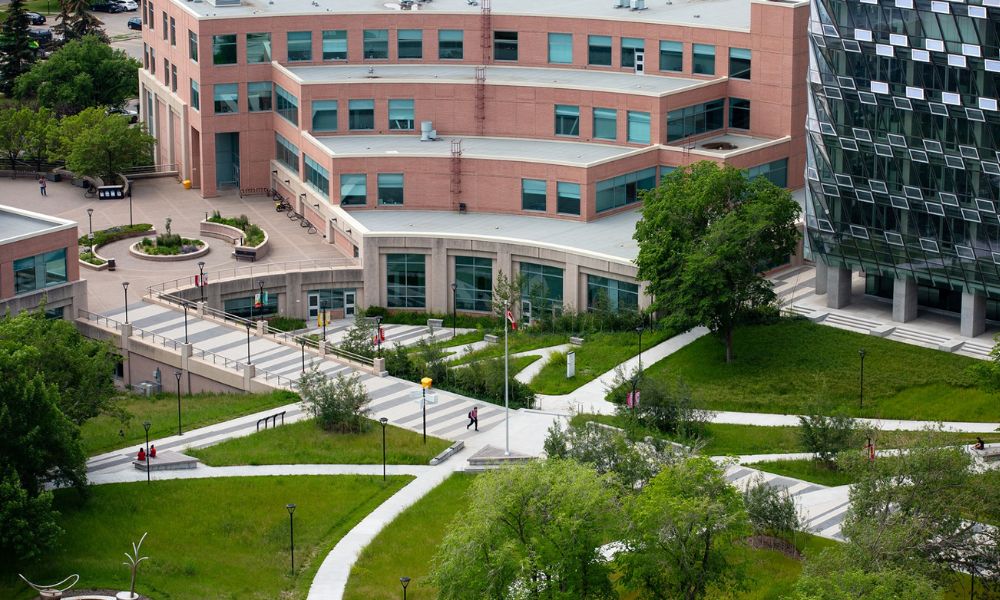
Overview:
Founded in 1966, the University of Calgary (UCalgary) is a research-intensive institution located in Alberta’s largest city. It is well-regarded for innovation in energy, engineering, and health sciences and fosters strong industry ties with Calgary’s booming tech and oil sectors.
Academic Strengths:
- Energy & Engineering: UCalgary leads in petroleum engineering, sustainable energy, and geoscience research. It houses the Schulich School of Engineering, which collaborates with global energy companies.
- Health Sciences: The Cumming School of Medicine is known for research in brain and mental health, cardiovascular sciences, and public health.
- Business: The Haskayne School of Business offers robust programs in entrepreneurship, finance, and energy management, with a focus on real-world application and innovation.
- Environmental Science: UCalgary conducts extensive research in environmental monitoring, water management, and climate change, often linked to Canada’s unique geography and ecology.
Campus Life:
Located near the Rocky Mountains, UCalgary offers a mix of urban and outdoor student life. The campus promotes a culture of innovation and entrepreneurship, with initiatives like the Hunter Hub for Entrepreneurial Thinking. Recreational facilities, student housing, and community outreach programs enrich campus life.
Admission Process:
- Undergraduate: Applications are submitted online through UCalgary’s portal. Requirements include transcripts, proof of English proficiency, and additional documentation for competitive programs.
- Graduate: Prospective graduate students apply directly to departments. Required documents include academic records, research proposals (if applicable), recommendation letters, and test scores (GRE/GMAT for some programs).
Scholarships:
- International Entrance Scholarship: Awarded to international students with excellent academic performance.
- University of Calgary International Scholarship: Valued at $15,000, this scholarship is awarded to outstanding international undergraduate students entering their first year.
Challenges Faced by Bangladeshi Students
1. Visa Restrictions and Delays:
- Tighter Immigration Policies: Countries like Canada and the UK have introduced stricter visa rules due to rising international applications and political considerations.
- Long Processing Times: Students face delays in visa approval, often missing application deadlines or even deferring their semesters.
2. Financial Barriers:
- Rising Tuition and Living Costs: Tuition fees, accommodation, and everyday expenses in Western countries have increased significantly.
- Proof of Funds Requirements: Students must show substantial bank statements, which is a major hurdle for middle-class families.
- Currency Exchange Rate Fluctuations: The weakening of the Bangladeshi Taka against major currencies like USD or CAD increases the total financial burden.
3. Political and Geopolitical Tensions:
-
Global events such as wars, economic instability, or changing diplomatic ties can unexpectedly affect student policies, funding, or safety.
4. Document Verification and Scams:
- Issues with forged documents or lack of standardization in Bangladesh’s academic transcripts often lead to verification delays or rejections.
- Some students fall prey to unlicensed or fraudulent student consultancy agencies.
5. Uncertainty About Post-Graduation Pathways:
-
Concerns about job opportunities, PR chances, and staying abroad after graduation are increasingly common due to shifting labor market dynamics and immigration policy updates.
Conclusion
In conclusion, Canada is home to some of the world’s most prestigious and diverse universities, each offering unique opportunities for academic growth, research, and cultural experiences. Whether you are interested in cutting-edge research at the University of Toronto, environmental sustainability at the University of British Columbia, or interdisciplinary innovation at McMaster, Canada’s top universities provide students with unparalleled opportunities to excel in their fields.
Moreover, Canada’s commitment to welcoming international students is reflected in the diverse scholarship options available, making these world-class institutions accessible to high-achieving students globally. The admissions processes are competitive but transparent, with a focus on academic excellence, extracurricular involvement, and personal achievements.For students looking to make a global impact, Canada offers a remarkable platform for academic and professional growth, with a range of opportunities to gain hands-on experience and contribute to meaningful research. With the right choice of university, academic program, and scholarship, your educational journey in Canada can shape a future filled with opportunities and success.
References

